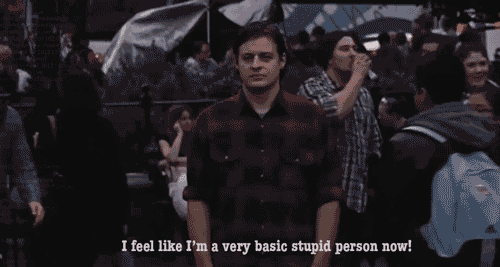“IN LIMBO questions the future of our individual and collective memory in the Internet era, from the point of view of all the data that will survive us. Built around a story of thirty minutes uploading your personal data, IN LIMBO takes you to the heart of a sensory journey in our connected memory.”
This is the start of a series of collaborative blogging here on the Still Web.
We are experimenting with the idea of text-based online dialogue and tentatively searching for ways to interact that are beyond seeking to prevail in debate. Some emerging rules for our dialogues are that we will connect with something and share perspectives, maintaining our own voice whilst listening to the other in resonance or dissonance. So this is not a review of this web documentary, more a series of blog posts to explore the impact this artefact had on each of us with our particular biases, pet subjects and associative trails.
A first attempt to make meaning out of very mixed emotions is bound to be fuzzy. I both hate it and love it each time I watch it. Yet, mostly it fills me with a sense of despair for our humanity. We play with something just because we can, rarely stopping to consider the implications. What is the future of our individual and collective data in the Internet era? This documentary tells me that I will in not too long be asking very specific questions of this ‘collective intelligence’. Here is Raymond Kurzweil from the film,
“So I would probably ask this intelligence, what should my goals be, why am I here and what should I be doing and what kind of creations should I seek to make. I ask myself these questions because I don’t have this intelligence but these are the questions we will be able to ask of artificial intelligence in the future.”
No, I will not.
Paul Miller tells me that being disconnected from the web for a year has left him feeling stupid. He talks about how initially being disconnected felt like a mystical experience, after a while it became normal and towards the end it made him like ‘a failure. I felt like I was giving up once again. But I knew the internet was where I belonged.’
His main learning was that connecting with other human beings without the web was hard and he did not have the resilience or tenacity to do this without it. I was left thinking that so many of these type of experiments have more to do with the personality of the individual undertaking them than with what they can teach us about the consequences of the way we use the web.
As I listen to his perspective on the film, I compare it with the way I handled my digital retreat over the holidays just gone. I was not focussed on disconnection because ‘it’ is causing me harm (as was Paul’s narrative from the start) but on how is it possible to be in the digital world in stillness? Our chosen frame of mind going into this kind of experiment matters so much. Paul concludes ‘I won’t have as much time to read or introspect or write the great American sci-fi novel. But at least I’ll be connected.’ Of course, he had the time to do all of that during his year offline, but instead he slept all day and played video games all night. This is not said in judgement, it is said to highlight that it is the inner not the outer that determines what we do with our technology or without it.
With a frame of ‘how can I make it work?’ or ‘how can we preserve the best of x and still do y?’ There is no need for any extreme detox or cold turkey as we live each day in resentment. If we go cold turkey to avoid ‘harm’, we move away from the ‘thing’ and are still defined by the ‘thing’ in its absence. We miss it and still cling to it. I am reminded giving up smoking except for that last cigarette at the end of the day. I spent all day thinking about that last cigarette.
In Paul’s case the Internet defined him, his associative trails online was who he was and importantly defined him as a social animal. Away from it he met his shadow and did not like it. And rather than take a look in the mirror, he found not-wifi-dependent distractions. He was not himself. In some ways, I too believe that we are our associative trails online. I also believe that the identity we bring to a mediated environment follows a simple law: Garbage in, garbage out. Or stillness in, stillness out. Simple in a way.
This collective and individual memory in the internet era has a potential that does fascinate me and is spoken to in the film. Our self narrative is anything but objective and objective data collection over years and over platforms can offer a view of the self that has to potential to surprise us and challenge our blind spots. Another voice from the film,
“Keeping track of yourself seems innately important – if I measure the self in the world I get to see the self you never get to know otherwise. If I collect enough data I can get to understand who that unseen self is.”
That edge between ‘delight and discomfort’ that Charlie Brooker speaks to in the series Black Mirror, is where the potential for exploration might be. Our espoused theories of mind and our theories in use are quite often poles apart, psychology warns. If is possible, as the film suggests, that my computer knows more details about me than my mother, that it knows you better than you know yourself, then may be, just may be, if we put this data together it could surprise us. So there is a push-pull dynamic here. Do I want to see my shadow? Paul’s case study seems to suggest: no. Yet there is an allure to seeing the unseen. What if in gathering all this data together I learnt about patterns I have not seen in my actions to date? The film tells us about data artist Liesl Capper who believes that
“the self we put on the web is more real than real, I am confined by nature but on the web I can be anyone, a true representation of what is in my soul and mind.”
She suggests that we are inexorably heading in a direction where the self is ‘more and more abstracted, thinking about thinking as opposed to doing’ because of digital mediation. She suspends judgment as to the value of this, but sees it as inevitable. Do we want to see our reflection warts and all?
I go back to Black Mirror. In the episode ‘The entire history of you’ we learn about he Grain,
“what if you had a kind of Sky Plus system for your head, so you could rewind and replay memories at will? You’d never forget where you left your keys again, for one thing. And it would be great for winning arguments. But it might not be brilliant news for the health of your relationship. After all, how much do you actually want to know about each other?”
The grain allows for what In Limbo only hints at. Total recall. Dinner parties where your day can be the subject of a ‘re-do’ over dinner. Delight and discomfort. In Limbo sees the delight more than the discomfort and goes as far at to speculate about the Internet as a religion. We come to it looking for cybergrace. In Limbo presents the views of Jim Gilliam who finds it hard to connect with old religions yet holds certain moral values he sees as coming from the Internet. He suddenly realised that,
“my value system and my morality was coming from the internet. Everything I value – sharing, connecting, openness, transparency and authenticity – everything I value. The internet is my religion.”
In the world of the Grain in Black Mirror there is no privacy, yet no big corporation is taking it away. It is human beings giving it up willingly for the comfort of total recall. The comfort of not having to even try to remember anymore. As David Whiteland says: ‘You should never underestimate the power of comfort. To our everlasting discredit, we owe our utter dependency on technology to our inability to resist it.’ In Limbo picks this theme up too. George Dyson,
People always say if we turn our computers off it [any intelligence] disappears, therefore we are still in control. But can we turn our computers off? Would they let us? We don’t know.
Agency here is put on the computer, but the more interesting question is: Can we turn our computers off? In the sense that even if we want to we cannot bring ourselves to be without them. Who can resist the allure of total recall? Not the people at Internet Archive,
We see the web as collective memory here at the internet archive. What we do is in concert with religion. A coming together. Every light that blinks on our servers is someone uploading or downloading something. Three million people a day using these machines.
Amen.
I recall, with my faulty organic memory, that after 20 years of meditation and retreats only 2 years ago could I bring myself to leave my smart phone in the lock up at the monastery as we are requested to do. I rarely used it but I could not bring myself to be without it.
What are the unintended consequences of a world where ‘digital remembering is the default and it is forgetting that is often forgotten’? Even in death we might be able to remember In Limbo enthuses about this very possibility. Black Mirror paints a different picture. The episode that speaks to this is ‘Be right back’ where Martha loses Ash, is grief-stricken and finds herself rebuilding an artificially intelligent Ash from the collected computer data of his whole life,
“Over the following days, Martha is overwhelmed by grief, and soon discovers that she is pregnant. Becoming emotionally unstable, she responds to the artificial Ash’s e-mail. She starts to communicate with him through instant messaging, and informs him of the pregnancy. She then uploads videos and photos of Ash to the service’s database, and the service duplicates Ash’s voice to talk to Martha over the phone. Martha allows herself to believe that she is talking to her dead partner, and over the following weeks she talks to the artificial Ash almost non-stop, keeping him updated regarding the pregnancy. After Martha accidentally damages her phone and has a panic attack when she temporarily loses contact with the service, the artificial Ash tells her about the service’s next stage, which is still in its experimental phase: a body made of synthetic flesh that the program can be uploaded onto.”
To our everlasting discredit, we owe our utter dependency on technology to our inability to resist it.
What do we lose when we remember everything? Ironically, I see that in our transition from the transient to the permanent (from fallible human memory to exhaustive digital memory) we are faced with our own impermanence. We could choose to see how a digital self that is ‘more real than real’ yet more about ‘thinking than about doing’ ‘makes it more obvious to us how our own life is finite but the world goes on’. In Limbo ends here.
The fact of impermanence, so strongly resisted in our culture, seen in flashing server lights as we watch our immortal digital selves live on.


